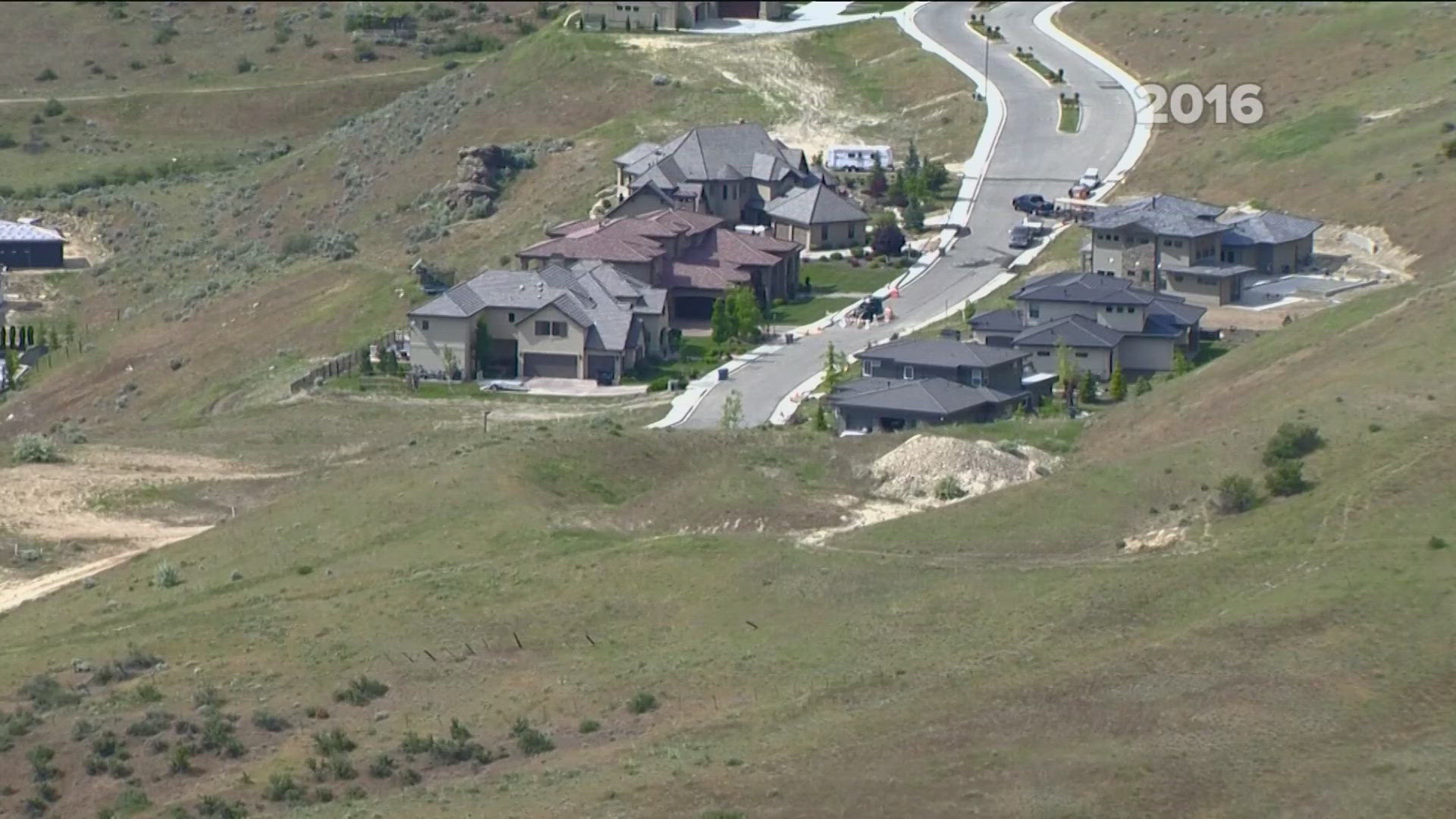BOISE, Idaho — The City of Trees is known for its natural beauty from its abundance of parks filled with lush plants and the ever-flowing Boise River running along the city's greenbelt. But above all lives the Boise Foothills, bringing a picture perfect scenery to the Treasure Valley.
Standing at the top of the foothills, the view can be described as "breathtaking." Naturally, residents built their homes on the hillface to dig in their roots and settle down. But nearly eight years ago, residents in the Terra Nativa Subdivision were forced to move out and abandoned their homes after shifting land underneath them was discovered.

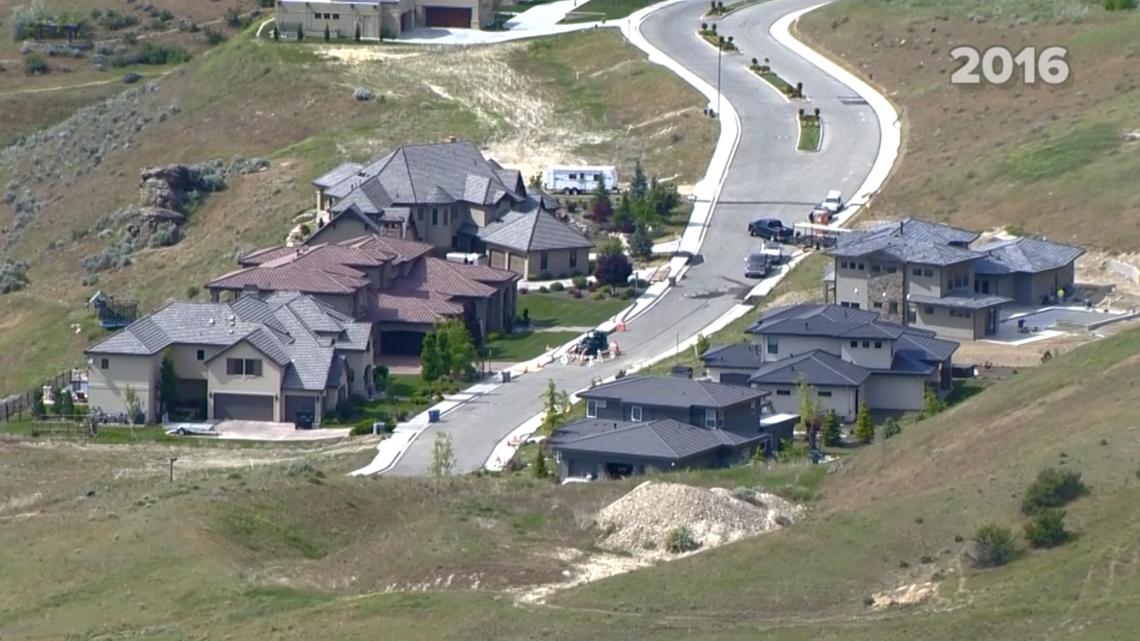
In the Spring of 2016, a landslide crumbled two homes and significantly damaged four others. Eric Rossman, an attorney and homeowner who lost his home, lived in the foothills for less than two years. He told KTVB the day of the landslide he didn't know what was happening until his neighbor called him.
"He said, 'You would not believe what is going on. We've got floor planks coming up the walls are cracking. It feels like the house is falling apart,'" Rossman said.
Initially, Rossman said he had hoped the home could be saved and rebuilt. But once he heard how much the land was moving underneath the homes, he told KTVB, "We knew we were going to lose it at some point."
When city employees like Building Official Jason Blais heard the news, he said it's "definitely not something we see every day."

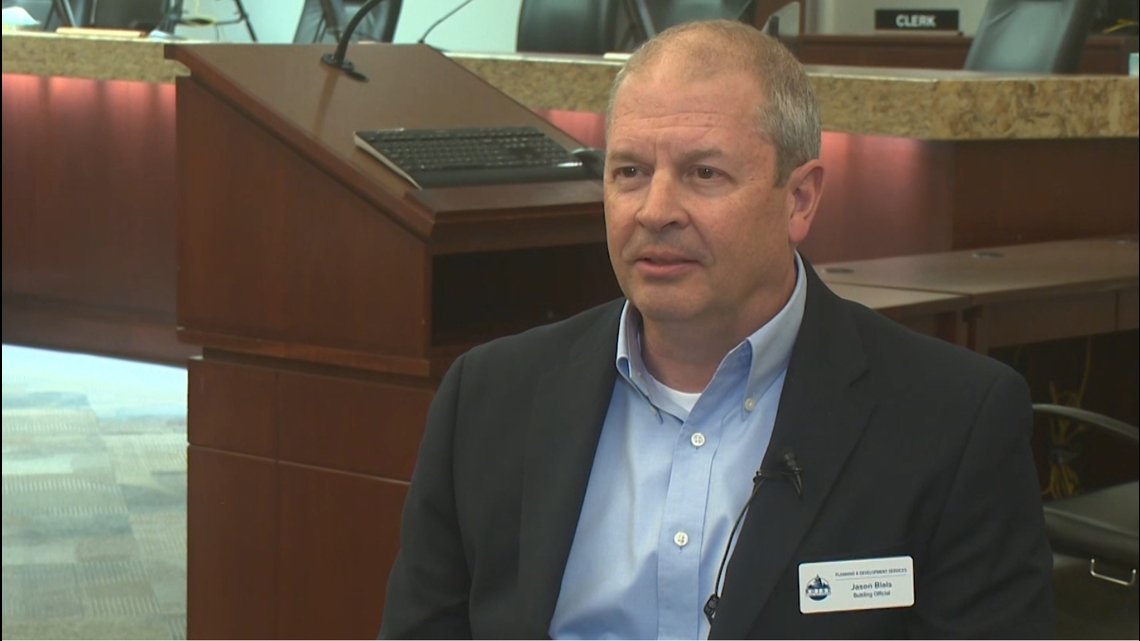
"We went to investigate," Blais said. "And sure enough, you know, the home was, you know, the landslide was basically going right through one of the homes. That's when we had to start investigating further with public works."
Rossman said," We were convinced through engineering experts that should never have happened, right? We should never been on that should have never been developed."

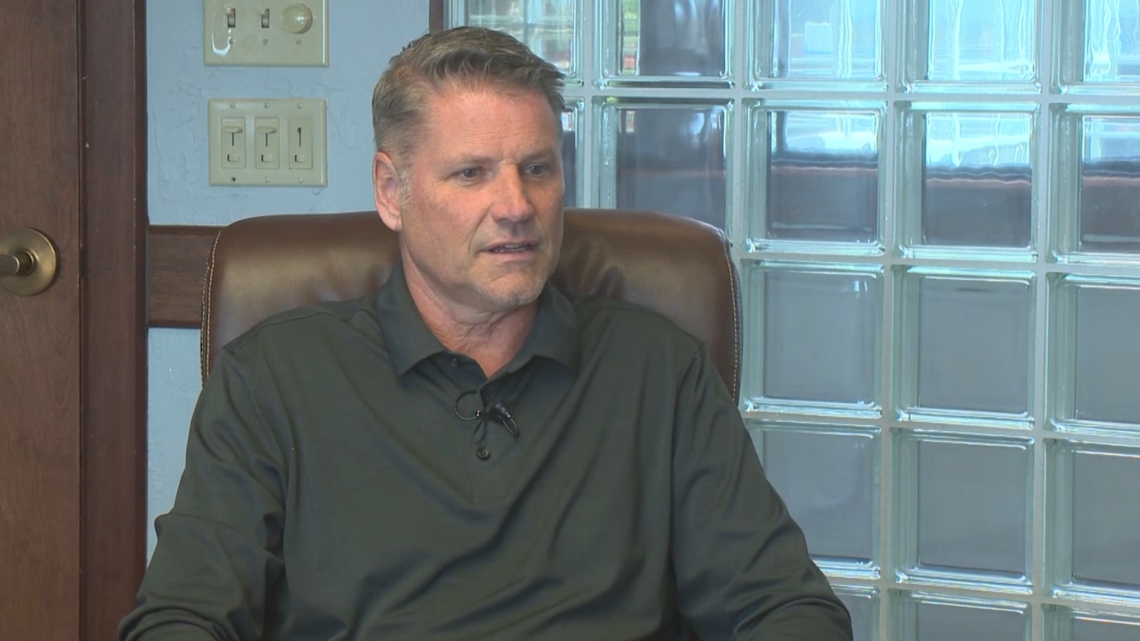
In 2016, KTVB interviewed city spokesperson Mike Journee about the incident. He said concerns over possible landslides were never raised during the permitting process.
"Our experts don't have any data, don't have any indication that the conclusion their expert come too to is imminent," he stated.
After the landslide, Rossman and homeowners filed lawsuits against the developer, developer engineers, and the city and city engineers. Aerial photos were collected as evidence for the lawsuit, and photos revealed an existing landslide where the homes were developed.

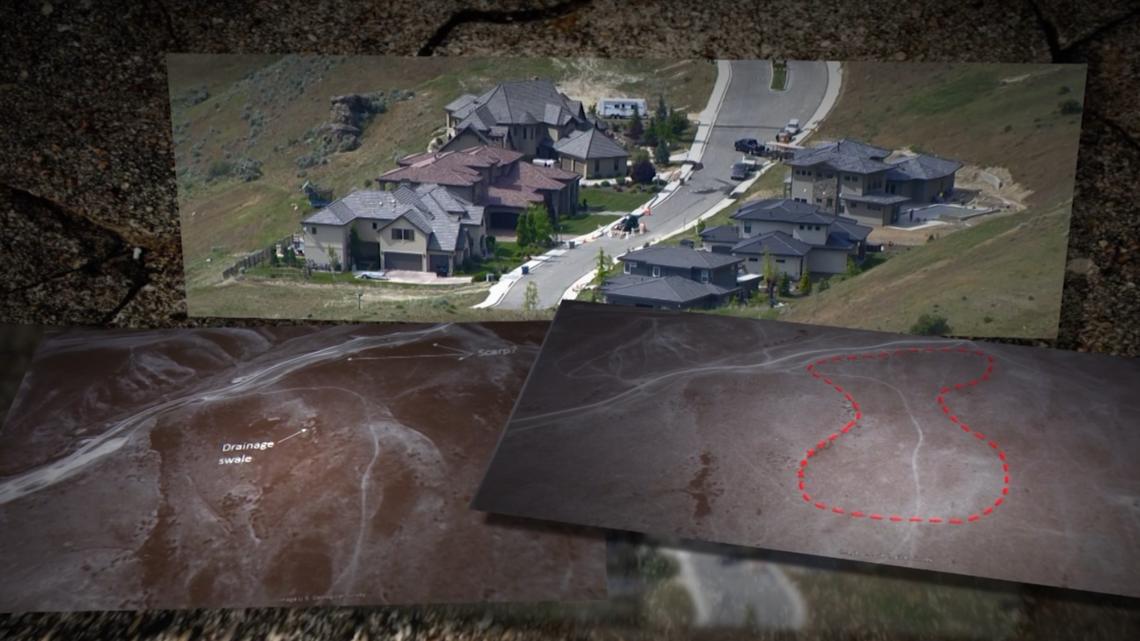
"Nobody even identified the landslide," Rossman said. "They didn't even look at aerial photographs. So we had real, real issues with the way that development was approved and submitted, and ultimately, how it was developed."
According to Boise's city code, developments are restricted from being built in landslide areas. However, the same code allows construction if the project engineer can prove, with reports and proper analysis, that "these site limitations can be overcome to minimize hazards to life and property... And any adverse effect of building there..."
In the 2016 incident, James Pardy, a city engineer, said the city determined there was enough analysis to allow construction on the hillside.
"This is private property, that burden falls on the developer who typically hires professional engineers and professional geologists and geo techs to go up there, do site evaluations, and then the burden lies on them to demonstrate that the site is safe for building," he said.
The city receives those reports, and a third party reviews firm them to double-check the project engineers' work. If the firm states that the report is good, the city green-lights a development.

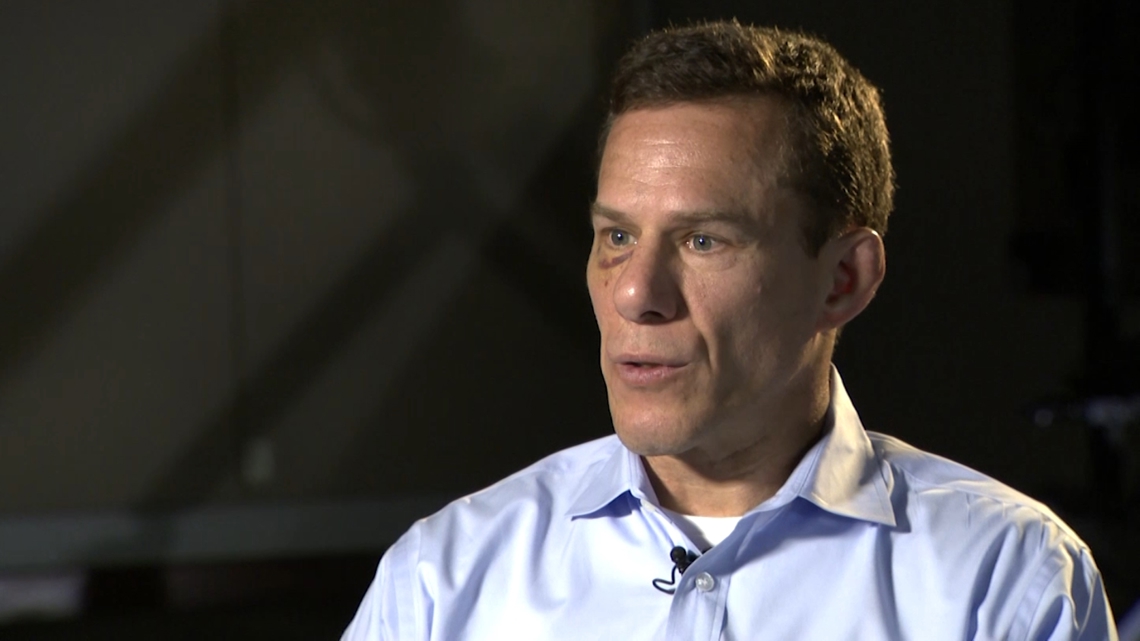
"So the city's role in this is to kind of honor the process and make sure that we're making people aware of potential hazards. [Also] making sure that due diligence has kind of done through the processes that are established," Pardy said.
The litigation in the case lasted around two years, and Rossman said, "It was a terrible couple of years." Being an attorney, he was able to represent himself.
"I didn't understand that there is an exclusion in your homeowner's insurance policy and your property insurance policy for ground movement. So, there was no insurance to cover any of this. So the only financial recovery we were going to get was through bringing, bringing the lawsuits and the claims, and ultimately, those were resolved to everyone's satisfaction," he said.
The City of Boise settled the case and paid the homeowners a total of $257,000, which they split. All parties agreed to dismiss the case. Ultimately, most of the damaged homes were demolished, and the properties were actioned off.
Blais said there is only one house remaining, and it's still under litigation.

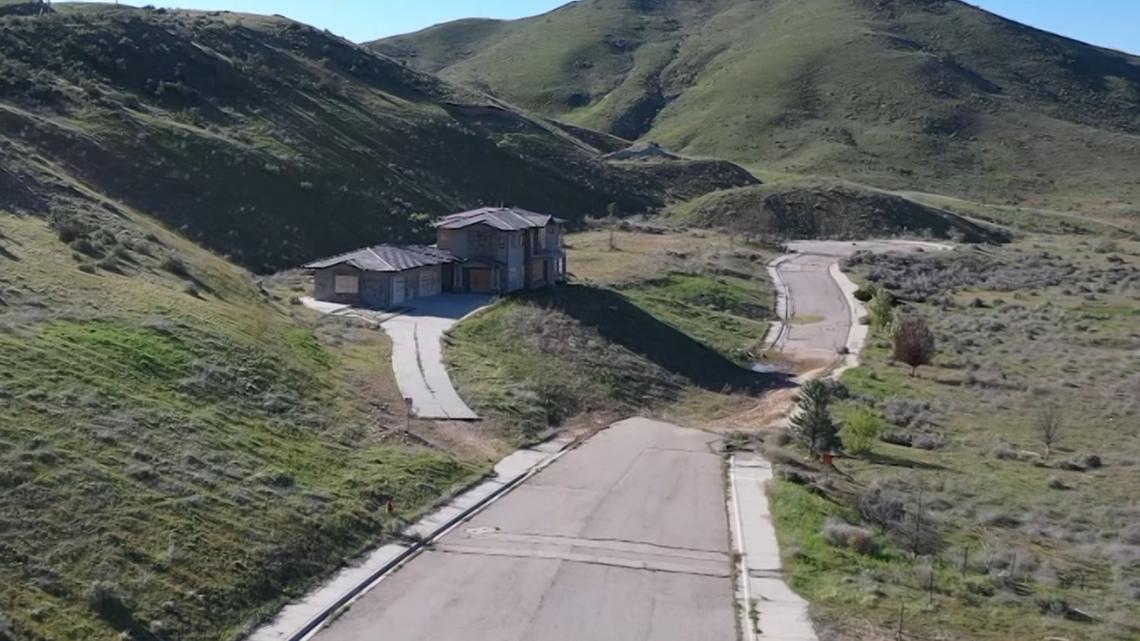
While there isn't much left of the neighborhood, hopes for homeowners looking to build in the Boise foothills aren't lost.
"The benefits of that slide is there's been a lot of studies on that slide, and stability in the foothills in general," and engineer told KTVB. "It's kind of lit a fire under all of us to really make sure we're we're doing a better job of getting a good understanding of what's happening, and really being able to provide that information to developers and feel confident with the recommendations that we give."
The city said it will require more rigorous requirements to allow more developments to be constructed in the area.
"It would be very challenging," Blais said. "It's gonna take some significant engineering investigation for anything to be considered."
Rossman hopes what happened to him never happens to any future homeowners.
"It impacts your work, it impacts your family and impacts your relationship. And we all went through all of that and all those emotions in that couple of years," he said.
The city said no one has been interested in building on North Alto Via Court since the landslide.
Watch more Local News:
See the latest news from around the Treasure Valley and the Gem State in our YouTube playlist:
HERE ARE MORE WAYS TO GET NEWS FROM KTVB:
Download the KTVB News Mobile App
Apple iOS: Click here to download
Google Play: Click here to download
Watch news reports for FREE on YouTube: KTVB YouTube channel
Stream Live for FREE on ROKU: Add the channel from the ROKU store or by searching 'KTVB'.
Stream Live for FREE on FIRE TV: Search ‘KTVB’ and click ‘Get’ to download.

